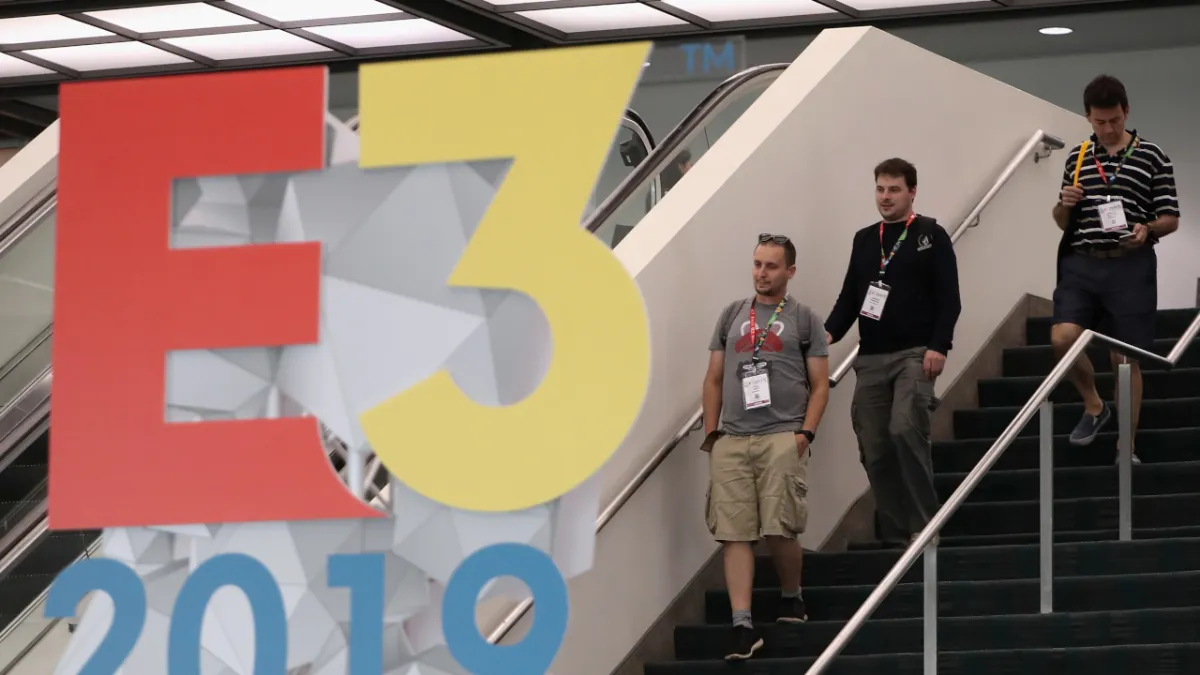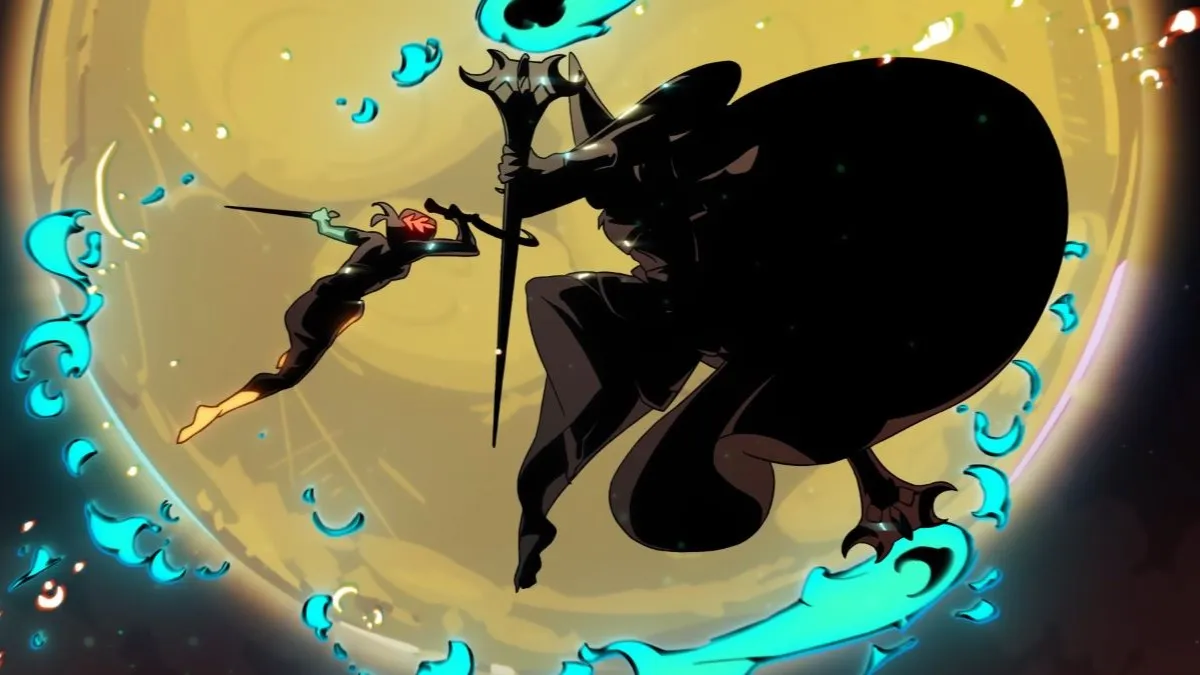E3, formerly gaming’s biggest show, has not been doing well recently. E3 didn’t happen in 2023, nor did we have an E3 2022 or E3 2020. E3 2021 was not in person, either, meaning the last official, physical E3 was E3 2019. So I wasn’t exactly surprised to hear murmurs that the show was officially dead.
Shortly after I landed my first full-time job as a games journalist, I was assigned a very special, very important beat: covering E3 2018. That weekend, I watched one presser after another, writing breaking news stories about reveal after reveal, carefully choosing which games to cover (and which ones to ignore). It was hard, challenging work. But I loved writing under a tight deadline, and it made me hungry for other challenging coverage opportunities.
My love for E3 didn’t start in 2018. For years, I watched each press conference religiously, waiting for the major reveals—and the memes. Back when he was with Polygon, Brian David Gilbert perfectly summed up the awkwardness of E3 events, where bad publicity stunts go viral. At some point, no one could really tell anymore if those “cringe” moments were purposefully off-putting or intended to get you talking.
Many blamed the COVID pandemic for essentially killing the show. But what really happened? Is E3 actually dead? Did the coronavirus slay the expo, or is there more to the story?
Just to be clear, E3 is officially dead, right?
First of all, yes, we should outright confirm that E3 is officially dead. As of December 12, 2023, it’s gone. The news came directly from the Entertainment Software Association, the group behind the expo.
“We know the entire industry, players and creators alike have a lot of passion for E3. We share that passion. We know it’s difficult to say goodbye to such a beloved event,” ESA’s president and CEO Stanley Pierre-Louis told the Washington Post on the 12th, “but it’s the right thing to do given the new opportunities our industry has to reach fans and partners.”
The official E3 account also shared a confirmation post on Twitter that same day. “After more than two decades of E3, each one bigger than the last, the time has come to say goodbye,” the post said. “Thanks for the memories. GGWP.”
So yes, E3 is gone, and it’s likely to stay dead.
So, why did E3 die? Was it COVID?
WaPo’s Gene Park pointed to multiple different reasons for E3’s closure. For example, the dawn of the livestreamed press conference, independent of E3 and ESA, made it so publishers and console creators were less reliant on E3 for marketing their upcoming products. Park reported that the trend originated with Nintendo’s first 2011 Nintendo Direct, followed by Sony leaving E3 in 2018 and Geoff Keighley moving on to ventures like the Summer Game Fest and The Game Awards shortly after.
When E3 first launched in 1995, the internet did not support the kind of online streaming capabilities and advanced social media networks we have today. Even online games journalism was still in its fledgling stages during the 1990s; GameSpot only debuted in 1996, as did IGN. Trade magazines were far more popular in the interim, and gamers were much more likely to rely on the games media to learn more about upcoming games and previews.
Today, games journalism is in an awkward spot. Who needs us when you can access previews and gameplay footage right on YouTube? Online, company-run press conferences cut out the middle-man. They can happen at any time throughout the year, allowing industry titans like Sony and Nintendo to suddenly and sporadically drum up hype and attention for upcoming releases. These productions put more control in companies’ hands, and provide a much more obvious return on investment. In 2019, Wired’s Jullie Muncy reported that an E3 booth “can run hundreds of thousands of dollars” for a small company alone, and that it was entirely unclear if tabling at E3 provided a “significant” benefit to a developer or publisher’s success in the first place.
At WaPo, Park argued that the COVID pandemic “further exacerbated E3’s woes” by forcing publishers to “adopt the online news conference format,” something that Pierre-Louis echoed while speaking to WaPo.
“There were fans who were invited to attend in the later years, but it really was about a marketing and business model for the industry and being able to provide the world with information about new products,” the ESA’s head said. “Companies now have access to consumers and to business relations through a variety of means, including their own individual showcases.”
E3 was struggling in a changing society
There are, of course, other reasons why E3 lost its influence over the past few years. Journalists and vendors’ personal identifying information was made publicly available in a major data leak in 2019. Then, E3 suffered from a company listing leak in 2020. The former shook confidence in the ESA’s ability to protect industry professionals’ safety, and the latter suggested that private, confidential information could not be trusted with the show.
In prior years, ESA companies also believed the association was struggling to simultaneously fight on behalf of the industry in the halls of D.C. while managing the expo. Some believed the ESA’s event and its political lobbying ventures should exist separately from one another, per Variety. Evidently, that option was no longer viable by 2023, leading to E3’s death.
So yes, COVID alone did not kill E3. The show was on the way out, a sentiment shared across the gaming industry. Ars Technica’s Kyle Orland called it “a show for a bygone game industry.” The Verge’s Ash Parrish said the industry “had already largely given up on E3.” Jason Schreier from Bloomberg suggested E3 was already on the way out as soon as 2019.
That said, I’ll miss the days when E3 press conferences kept me glued to my monitor, waiting for all those strange, quirky, or cringey unforgettable moments. Alyssa Mercante at Kotaku invited the rest of the industry to “press ‘F’ to pay respects” to the beloved event, and I for one will join in on said venture.
E3, this one is for you.

F.
(featured image: Photo by Christian Petersen/Getty Images)








